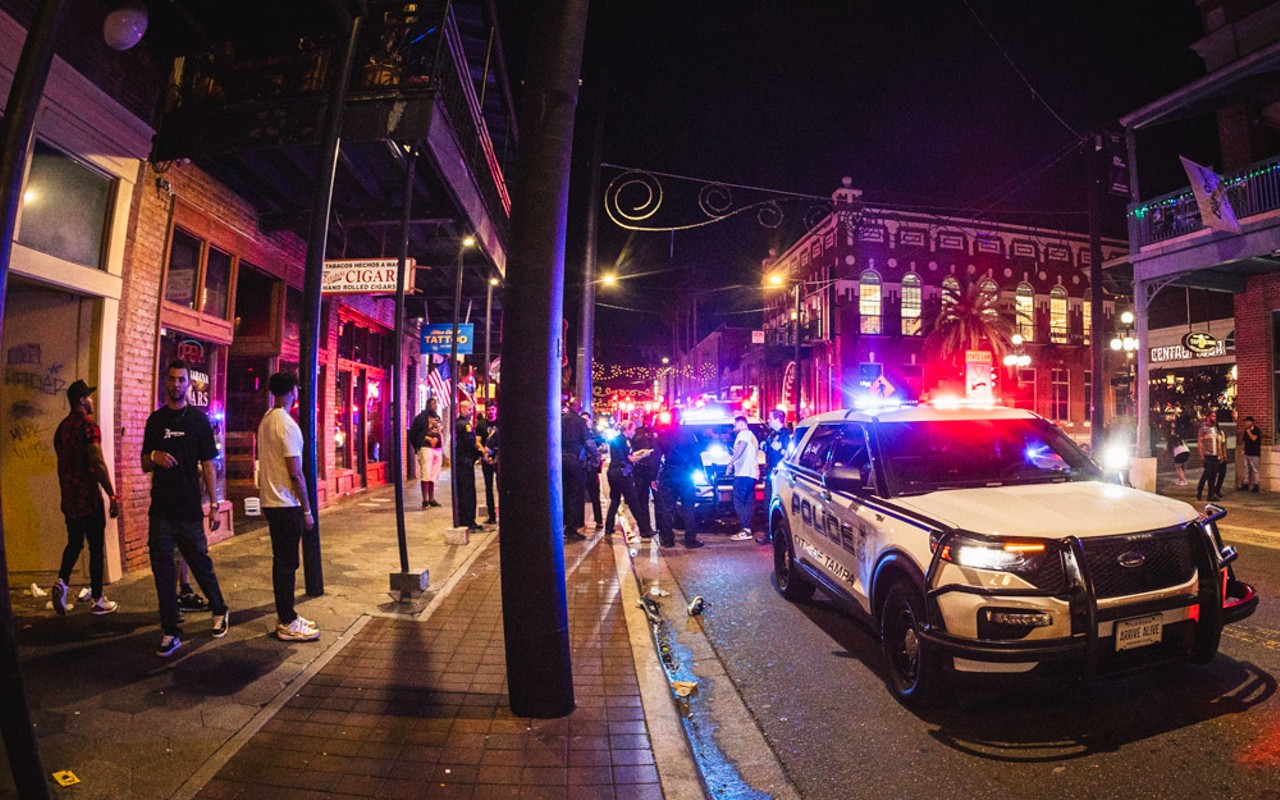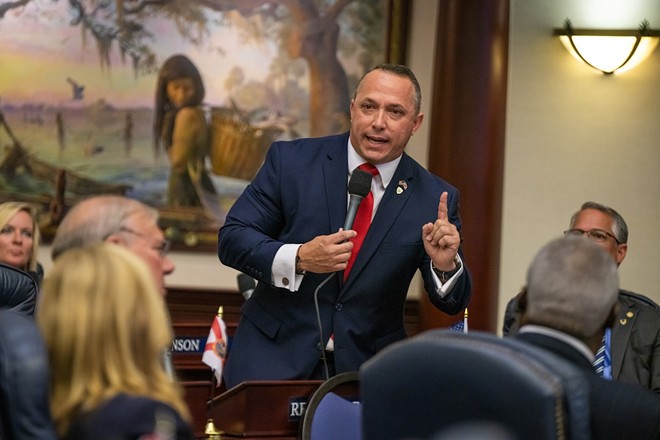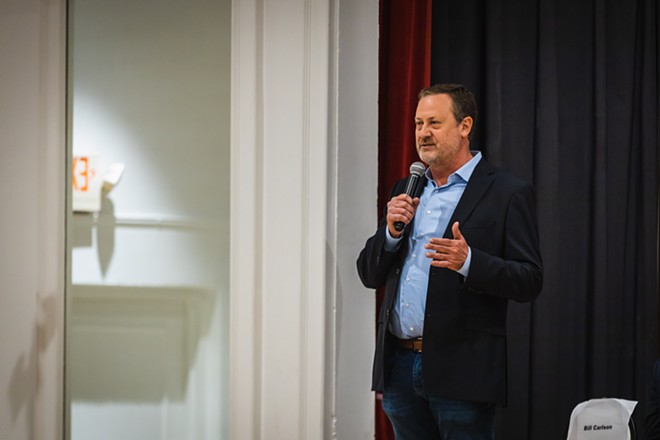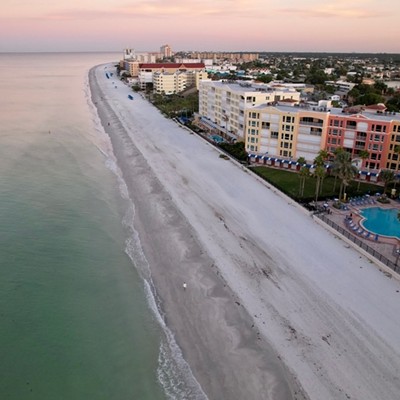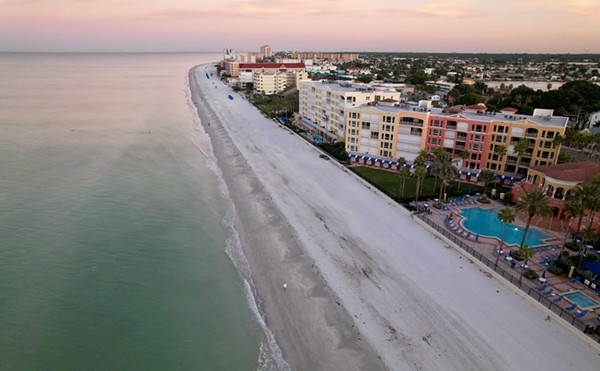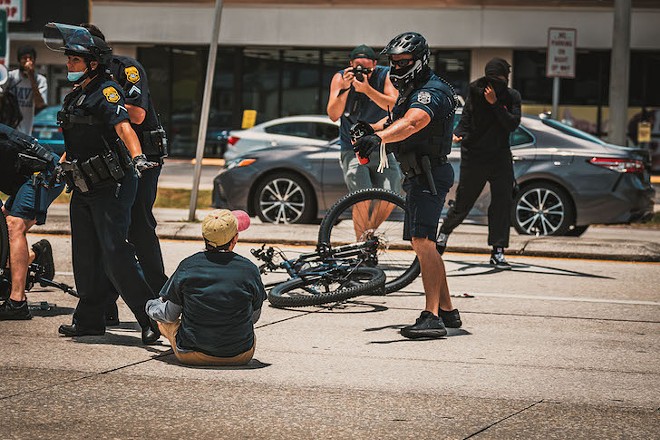
The decision came last Thursday after council members reported receiving new information—most significantly that the city of Miami’s Civilian Investigation Panel had not shut down as they said they had been told. The Tampa civilian review board (CRB) will remain dormant until the council decides what to do later in the year.
In June, Tampa city attorneys advised the council that a recently enacted law (HB 601) gave them “no choice” but to scrap the agency, but advocates including the ACLU of Florida argue the city does not need to go that far.
The law as originally proposed in the Florida Legislature this year did call for outright eliminating oversight agencies across the state, but its sponsors in the Legislature ultimately softened the language to allow these boards to continue in a more restricted fashion.
The final version of the law says that three-to-seven-member boards can be created only by police chiefs or county sheriffs with at least one retired law-enforcement officer on a committee. However, the panels are prohibited from investigating complaints of misconduct by law enforcement officers or holding civilian oversight power over law enforcement agencies’ investigations of such complaints.
Nationally, dozens of cities launched civilian oversight agencies in 2020 and 2021 in a wave of police reform, according to a 2022 University of Chicago study.
During an earlier discussion of the measure, on June 6, Tampa City Councilman Luis Viera denounced the law. “I think it’s awful,” he said. “So, for me, this legislation is something that intrudes on local government control on a very, very sensitive issue, and I would have voted against it. But our hands are tied.”
Other local lawmakers around the state who have seen their CRBs shut down lambaste the law as another unnecessary preemption.
“It’s a shame the extremist state government has overreached into local authority yet again,” Tallahassee City Commissioner Jack Porter told the Phoenix. The Tallahassee Citizens Police Review Board is inactive. Porter says the idea of reviving the agency in a new form “may be revisited in the fall when we return from break.”
In making the case for Tampa to shut down its CRB, City Attorney Andrea Zalman argued that similar review boards had already closed, including in Miami. “The Legislature has given us no choice in this matter,” she said in June.
That is not the case, insists Rodney Jacob, executive director of the Miami Civilian Investigation Panel. “We’re working in collaboration with the city for next steps,” Jacob told the Phoenix this week, without elaborating. In nearby Broward County, commissioners in June suspended their agency through mid-September to figure out their next steps, as well.
Some of these officials appear to be looking at what the ACLU of Florida argued in a memo issued in April, in which that organization noted that the law “explicitly restricts its applicability to ‘ordinances’ concerning receipt, processing, investigation, or oversight, and thus does nothing to prevent citizens from independently joining together to form their own panel, nor does it prohibit government-established panels created through other legal means apart from an ordinance.”
The ACLU noted that several cities have created citizen-review boards by these other means, such as Key West, which established its oversight board through its city charter. The ACLU noted that Tampa’s citizens’ review board was originally established by an executive order by then-Mayor Bob Buckhorn.
“That’s very misleading,” replied city attorney Zalman. Yes, the CRB was originally created by an executive order she said, but City Council codified the order as an ordinance and amended it in 2021. “Our CRB is a creation of an ordinance,” she said.
Lawmakers’ warnings
Hillsborough County Republican state House member Danny Alvarez, a co-sponsor of the legislation, warned the Tampa City Council in June to not even contemplate recreating their agency by going against the spirit of the law. Wayne Duggan via Florida House Danny Alvarez via Florida House“Having worked on this bill and having co-sponsored it myself, that if you were to find some sort of way that you’re going to keep it going, then I’ll just have to come back to the dais and tighten it up over whichever loophole you think that they may have found,” he said.
“I hate to have to be that way and talk about that, but the intent of this was to uniformly make these COAs [civilian oversight agencies] across the state of Florida, and the intent is after July 1 they all shut down, and then they can reopen at the will of the city of Tampa should you want that under the statute’s rules.”
Duval County Republican Wyman Duggan was the bill’s main sponsor in the House. He told a legislative committee earlier this year that one reason the legislation was needed was because there were “no uniform standards as to the qualifications or expertise of anybody to be a member.”
Additionally, “there’s no uniform standards on how they choose which cases to investigate,” he said. “There are no uniform standards by which that investigation is conducted. There are no uniform standards by which they reach their decisions, and there are no uniform standards as to the due-process protections afforded to the officer who is subject of the misconduct review.”
Duggan rejected criticism that rogue officers will escape accountability, pointing to a multitude of law enforcement agencies, including internal affairs offices within police departments as well as sheriff’s offices, state attorneys, the attorney general’s office, the FBI, and the Department of Justice, that can and do conduct such investigations.
Among the CRBs that have folded completely (for now) are those in Fort Myers, North Miami, and Orlando.
“Since the new bill went into effect July 1, we are still currently evaluating the new changes before making any future decisions,” said Ashley Papagni, public information officer with the city of Orlando. “The previous board has since disassembled for the time being.”
Jamie Brown, a spokesperson for the city of Winter Haven, said that although that Central Florida city has disbanded its Community Advisory Committee, “we are not abandoning the committee altogether.” She said the city’s police chief is reviewing the full committee of nine members and two alternates to “ultimately select members based on the HB 601 criteria,” likely by the end of September. Melanie Bevan via BPD
An official with the city of Bradenton said that it dissolved its CRB shortly after HB 601 was passed, but Police Chief Melanie Bevan “will be revisiting the Citizen Review Board after the first of the year.”
In Sarasota, meetings with both the Independent Police Advisory Panel and the Police Complaint Commission were suspended as of July 1, according to City Attorney Robert M. Fournier. He said that the city is watching what other jurisdictions do.
“A report will be made to the City Commission later in the year based on what is learned, and it is anticipated that a final decision on the path forward will be made by the City Commission at that time,” Fournier said.

‘We want to be very transparent’
One city that has no intention of shutting down for long is St. Petersburg, which has renamed its civilian review board the Police Policy Review Commission. St. Petersburg Police Chief Anthony Holloway said the six-member panel will review use-of-force cases once it is fully constituted.“We will have them review the case, and have them review the policy, and see if we need to change it,” he said in an interview conducted in his office this week.
“We want to be very transparent in what we do,” Holloway said. “They can’t say, ‘You should have done this. You should have done that.’ But they will look at the policy: Do they have to tighten up the policy? Is there something that’s lacking, because we still want the community to see what we’re doing and, if we need to change our policy, then we want input from our community, this is where we police.”
The ACLU of Florida notes that the new law does not prohibit reviewing closed complaints, now the only type that some CRBs, such as in Tampa, Naples, and Daytona Beach, are allowed to investigate. The organization contends that even before HB 601 became law these agencies were only allowed to do only two things: review records related to closed investigations and express sentiments related to those closed investigations.
“The new law does nothing to restrict civilian review boards from carrying out the important functions of reviewing closed cases, reviewing policies and procedures, and making recommendations to a chief, mayor, or city council,” the ACLU of Florida’s Kara Gross told the Phoenix on Thursday.
“To be clear, Florida citizen-review panels are empowered to review closed investigations and offer their comments, just as any other Florida citizen would be able to do by requesting copies of materials relating to closed investigations under Florida’s public-records laws. Nothing in the new law dissolves already compliant existing review boards or alters existing procedures for reviewing and commenting upon closed or inactive investigations,” Gross said.
There has also been criticism that CRBs in Florida lack power.
In Tampa, City Councilman Bill Carlson, who sponsored the proposal to kill the civilian review board in June, said he did so because, even before the new law went into effect, the city’s oversight agency was never able to achieve what it was intended to do.
“The CRB was originally created because of ‘biking while Black.’ And our CRB does not really solve that problem,” he said, referring to a Tampa Bay Times 2015 report that ultimately led the U.S. Department of Justice investigation in 2016 and a report finding that the Tampa Police Department “burdened Black bicyclists by disproportionately stopping them in the name of benefiting Black communities by increasing their public safety.” (Emphasis in the original.)
The report added that the analysis indicated that the policy “did not produce a community benefit.”
“The CRB only could review closed cases,” Carlson said of the Tampa review board. “It was toothless. It never did what everybody originally wanted it to do.”
The Tampa City Council will revisit the issue on Nov. 7.
Florida Phoenix is part of States Newsroom, a nonprofit news network supported by grants and a coalition of donors as a 501c(3) public charity. Florida Phoenix maintains editorial independence. Contact Editor Michael Moline for questions: [email protected]. Follow Florida Phoenix on Facebook and X.

